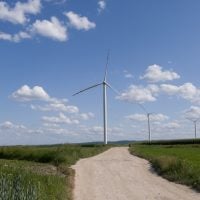In recent years, the renewable energy sector has emerged as a beacon of hope for sustainable development, offering innovative solutions to combat climate change while promoting economic growth. However, despite the significant strides made in this field, women remain underrepresented in many areas of renewable energy. To address this disparity, various grants have been established specifically to empower women in this vital sector.
These grants not only provide financial support but also foster an environment where women can thrive as leaders, innovators, and entrepreneurs in renewable energy. Renewable energy grants for women are designed to bridge the gender gap and encourage female participation in a field that is crucial for the future of our planet. By providing funding for projects, education, and business initiatives, these grants aim to create a more inclusive and diverse workforce.
This article will explore the various types of grants available, their significance, and how women can leverage these opportunities to make a meaningful impact in the renewable energy landscape. Are You Working on Solar Innovation or Clean Energy Access? Join us to receive updates.
The Importance of Supporting Women in the Renewable Energy Sector
Supporting women in the renewable energy sector is not just a matter of equity; it is also a strategic imperative for achieving sustainable development goals. Women bring unique perspectives and innovative ideas that can drive progress in renewable energy technologies and practices. By empowering women, we can harness their potential to create solutions that are not only effective but also socially responsible and inclusive.
Moreover, research has shown that diverse teams are more effective at problem-solving and innovation. When women are included in decision-making processes, organizations are more likely to develop comprehensive strategies that address the needs of all stakeholders. This is particularly important in renewable energy, where community engagement and social acceptance are critical for the success of projects.
By supporting women in this sector, we can ensure that a wider range of voices is heard, leading to more sustainable and equitable outcomes.
Government Grants for Women in Renewable Energy
Government grants play a pivotal role in supporting women in the renewable energy sector. Many countries have recognized the importance of gender equality in achieving their renewable energy goals and have established specific funding programs aimed at empowering women. These grants often target various aspects of the sector, including research, project development, and capacity building.
For instance, the U.S. Department of Energy offers grants through its Office of Energy Efficiency and Renewable Energy (EERE) that specifically encourage women’s participation in clean energy initiatives. These grants can be used for research projects, technology development, and community-based programs that promote renewable energy solutions.
Similarly, other countries have launched initiatives that provide financial assistance to women-led projects, ensuring that they have the resources needed to succeed.
Private Foundation Grants for Women in Renewable Energy
In addition to government funding, private foundations have also stepped up to support women in the renewable energy sector. These organizations often focus on specific areas such as innovation, entrepreneurship, and education. By providing grants tailored to women’s needs, private foundations can help bridge the funding gap that many female entrepreneurs face.
For example, the Global Fund for Women offers grants to support women’s initiatives worldwide, including those focused on renewable energy. Their funding can help women-led organizations develop sustainable energy solutions that benefit their communities while also promoting gender equality. Similarly, the Rockefeller Foundation has invested in programs that empower women in clean energy sectors, recognizing that their involvement is crucial for achieving global sustainability goals.
International Grants for Women in Renewable Energy
International grants provide another avenue for women seeking to make an impact in the renewable energy sector. Organizations such as the United Nations Development Programme (UNDP) and the World Bank offer funding opportunities aimed at promoting gender equality and sustainable development worldwide. These grants often support projects that empower women through access to clean energy technologies and training programs.
One notable example is the UNDP’s Gender and Climate Change initiative, which funds projects that integrate gender considerations into climate change adaptation and mitigation efforts. By focusing on women’s roles in renewable energy, these international grants help create a more equitable distribution of resources and opportunities across different regions and communities.
Scholarships and Fellowships for Women in Renewable Energy
Education is a critical component of empowering women in the renewable energy sector. Scholarships and fellowships specifically designed for women can provide the necessary financial support to pursue degrees or specialized training in fields related to renewable energy. These opportunities not only enhance women’s skills but also increase their visibility within the industry.
Many universities and organizations offer scholarships aimed at encouraging women to enter STEM (Science, Technology, Engineering, and Mathematics) fields related to renewable energy. For instance, the American Association of University Women (AAUW) provides fellowships for women pursuing graduate studies in engineering or environmental sciences. By investing in women’s education, these programs help cultivate a new generation of female leaders who can drive innovation in renewable energy.
Business and Entrepreneurial Grants for Women in Renewable Energy
Entrepreneurship is a powerful tool for women looking to make their mark in the renewable energy sector. Business grants specifically aimed at women entrepreneurs can provide the necessary capital to launch or expand clean energy ventures. These grants often focus on innovative solutions that address local energy needs while promoting sustainability.
Organizations like the Women’s Business Enterprise National Council (WBENC) offer grants and resources for women-owned businesses in various sectors, including renewable energy. By providing financial support and mentorship opportunities, these programs help women entrepreneurs navigate the challenges of starting and growing their businesses while contributing to a greener economy.
Training and Education Grants for Women in Renewable Energy
Training and education are essential for equipping women with the skills needed to excel in the renewable energy sector. Grants focused on training programs can help women gain hands-on experience with renewable technologies, project management, and leadership skills. These opportunities not only enhance their employability but also empower them to take on leadership roles within their organizations.
Various organizations offer training grants specifically designed for women in renewable energy. For example, the Solar Energy Industries Association (SEIA) provides resources and funding for training programs aimed at increasing women’s participation in solar energy jobs. By investing in training initiatives, these grants help create a skilled workforce capable of driving innovation and growth in the renewable energy sector.
Mentorship and Networking Grants for Women in Renewable Energy
Mentorship and networking are crucial components of professional development for women in any field, including renewable energy. Grants that facilitate mentorship programs or networking events can provide invaluable support by connecting women with experienced professionals who can guide them on their career paths. Organizations like Women of Renewable Industries and Sustainable Energy (WRISE) offer mentorship programs designed to connect women with industry leaders who can provide insights and advice on navigating the challenges of the renewable energy sector.
By fostering these connections, mentorship grants help build a supportive community that encourages collaboration and knowledge sharing among women professionals.
Impact of Women in Renewable Energy: Success Stories
The impact of women in the renewable energy sector is evident through numerous success stories that highlight their contributions to sustainability and innovation. For instance, Dr. Amina J. Mohammed has been instrumental in advocating for gender equality within climate action initiatives at the United Nations. Her work emphasizes the importance of integrating women’s perspectives into policy-making processes related to renewable energy. Another inspiring example is Dr. Jennifer Holmgren, CEO of LanzaTech, who has led groundbreaking advancements in carbon capture technology. Her leadership has not only propelled her company forward but has also paved the way for other women to pursue careers in clean technology. These success stories serve as powerful reminders of what can be achieved when women are given the opportunity to lead and innovate within the renewable energy sector.
How to Apply for Renewable Energy Grants for Women
Applying for renewable energy grants requires careful planning and preparation. First and foremost, it is essential to identify which grants align with your goals and project objectives. Researching various funding sources—government agencies, private foundations, international organizations—will help you find opportunities tailored to your needs.
Once you have identified potential grants, it is crucial to thoroughly review their application requirements and guidelines. Many grant applications require detailed project proposals outlining objectives, methodologies, budgets, and expected outcomes. Crafting a compelling narrative that clearly articulates your vision and demonstrates your capacity to execute the project is vital.
Additionally, consider seeking feedback from mentors or colleagues who have experience with grant applications. Their insights can help you refine your proposal and increase your chances of success. Finally, be mindful of deadlines and ensure that all required documentation is submitted on time.
In conclusion, renewable energy grants for women represent a significant opportunity to empower female leaders within this critical sector. By leveraging these resources—government funding, private foundation support, international grants, scholarships, entrepreneurial initiatives, training programs, mentorship opportunities—women can make substantial contributions to sustainable development while advancing their careers in renewable energy. The journey may be challenging, but with determination and access to these valuable resources, women can drive meaningful change in creating a greener future for all.
In the realm of empowering women in renewable energy, the article “15 Grants Empowering Women in Renewable Energy” highlights various opportunities for women to advance in this crucial sector. A related initiative that complements these efforts is the Smart and Connected Energy Management Program, which focuses on innovative energy solutions. This program encourages the development of smart energy management systems, which can significantly benefit from the inclusion of diverse perspectives, including those of women. For more information on this program, you can read the full article by following this link.









































